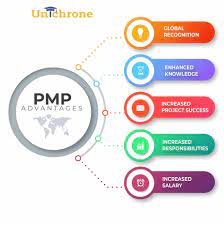
The Power of Project Management (PM) in Business Success
The Importance of Project Management in Business
Project management (PM) plays a crucial role in the success of businesses across various industries. It involves planning, executing, monitoring, and closing projects to achieve specific goals within a set timeframe and budget.
Effective project management ensures that tasks are completed efficiently, resources are optimally utilized, risks are mitigated, and stakeholders are kept informed throughout the project lifecycle.
Benefits of Project Management
Improved Efficiency: PM helps streamline processes, identify bottlenecks, and allocate resources effectively to ensure timely project delivery.
Cost Control: By setting clear budgets and monitoring expenses closely, project managers can prevent cost overruns and ensure projects remain financially viable.
Risk Management: PM involves identifying potential risks early on and developing strategies to mitigate them, reducing the likelihood of project failures.
Key Components of Project Management
Planning: This phase involves defining project objectives, scope, timelines, resources required, and potential risks.
Execution: During this phase, the project plan is put into action through task delegation, resource allocation, and regular progress monitoring.
Monitoring and Controlling: Project managers track progress against milestones, address issues promptly, and make necessary adjustments to keep the project on track.
Closing: Once the project objectives are met and deliverables accepted by stakeholders, the project is formally closed out with a review of lessons learned for future improvements.
In Conclusion
In today’s competitive business landscape, effective project management is essential for driving innovation, achieving strategic goals, and delivering value to customers. By investing in robust PM practices and skilled professionals, organisations can enhance their operational efficiency and maintain a competitive edge in the market.
Deciphering the Acronym: Understanding What PMP Stands For
Assessing the Difficulty Level of the PMP Examination
4. Exploring the Significance of
How to prepare for PMP exam?
Preparing for the Project Management Professional (PMP) exam requires a strategic approach and dedication to mastering the key concepts and methodologies outlined in the PMBOK guide. To prepare effectively for the PMP exam, aspiring candidates should start by familiarising themselves with the exam format, content outline, and eligibility requirements set by the Project Management Institute (PMI). Creating a study plan that includes reviewing study materials, practising with sample questions, and taking mock exams can help candidates assess their readiness and identify areas for improvement. Additionally, enrolling in PMP exam prep courses or workshops can provide valuable insights and guidance from experienced professionals in the field. Consistent practice, time management, and a thorough understanding of project management principles are essential for success in achieving PMP certification.
What PMP means?
The abbreviation PMP stands for Project Management Professional. It is a globally recognized certification offered by the Project Management Institute (PMI) that validates an individual’s expertise in project management. Achieving the PMP certification demonstrates a professional’s proficiency in leading and directing projects, as well as their ability to manage various aspects of project execution effectively. This certification is highly valued in the field of project management and is often sought after by professionals looking to advance their careers and showcase their commitment to excellence in managing projects.
Is PMP exam hard?
The question “Is the PMP exam hard?” is a common concern among individuals aspiring to obtain their Project Management Professional (PMP) certification. The difficulty of the PMP exam varies depending on an individual’s level of experience, preparation, and familiarity with project management concepts. While the exam is known for its challenging nature and comprehensive coverage of project management principles, adequate preparation through study guides, practice exams, and formal training can significantly increase one’s chances of success. With dedication, perseverance, and a structured study plan, many professionals have successfully passed the PMP exam and advanced their careers in project management.
What is a PMP qualification?
The Project Management Professional (PMP) qualification is a globally recognised certification that demonstrates an individual’s expertise in project management. Awarded by the Project Management Institute (PMI), the PMP credential signifies a professional’s proficiency in leading and directing projects effectively. To attain the PMP qualification, candidates must meet specific educational and experience requirements, pass a rigorous examination that assesses their knowledge of project management processes, and adhere to PMI’s code of ethics. Holding a PMP certification not only validates one’s project management skills but also opens up new career opportunities and enhances credibility in the field of project management.